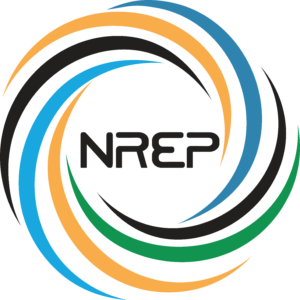Introduction
The National Renewable Energy Platform (NREP) convened a high-level stakeholder meeting to discuss the Clean Cooking Promotion Roadmap for Refugee Host Communities. The meeting, held at the Ministry of Energy and Mineral Development (MEMD), brought together key partners, including Mercy Corps, UNEP, WFP, UNHCR, and private sector organizations, to align efforts in promoting clean cooking solutions in Uganda’s refugee settlements and host communities.
With support from the UK government through Modern Energy Cooking Services (MECs), funding has been secured to enhance clean cooking awareness in these communities. The discussion focused on coordinating strategies, overcoming challenges, and mobilizing resources to ensure the effective adoption of clean cooking technologies.
Key Discussion Points
1. The Need for Coordination in Clean Cooking Efforts
Dr. Nicholas Mukisa, Deputy National Coordinator at NREP, emphasized the importance of stakeholder coordination to prevent duplication of efforts and maximize impact. He highlighted that the MECs funding presents an opportunity for organizations to work together towards a common goal: improving clean cooking access and awareness in refugee settlements.
2. Reviewing and Translating Clean Cooking Resources
Stakeholders stressed the need for a comprehensive review of existing research and clean cooking materials. A major barrier to adoption is the language gap, making it essential to translate educational materials into local languages to enhance accessibility and understanding for refugees.
“We must tailor our information to the needs of refugees, ensuring that they can easily understand and adopt clean cooking solutions,” Dr. Mukisa reiterated.
3. Engaging Leaders and the Private Sector
The meeting highlighted the necessity of engaging high-level leaders and mobilizing private sector participation to address supply and demand challenges in clean cooking adoption.
- High-Level Leadership Engagement: Involvement of policymakers and community leaders to drive awareness and advocacy.
- Private Sector Mobilization: Encouraging businesses to invest in the production and distribution of affordable clean cooking technologies.
The SUSTAINED project by Mercy Corps, which is currently being implemented in Bidi Bidi refugee settlement, was recognized as a key initiative supporting clean cooking adoption. Stakeholders urged NREP to consolidate existing clean cooking documents as part of the SOLCO roadmap, ensuring a more structured approach to clean cooking interventions.
4. Awareness Campaign Strategies
Several action points were agreed upon to strengthen community engagement:
✅ Systematic Literature Review: A comprehensive study of existing research to inform policy and interventions.
✅ Stakeholder Engagement Meetings: Regular discussions to align efforts and share best practices.
✅ Mobilizing Refugee-Led Organizations: Empowering refugee-led groups to become clean cooking champions.
✅ Leveraging Local Radio Stations: Broadcasting awareness campaigns in languages understood by refugee communities.
✅ Community Event Engagement: Using public celebrations and gatherings as platforms to promote clean cooking adoption.
5. Addressing Challenges in Clean Cooking Adoption
Stakeholders identified key challenges and proposed targeted solutions:
| Challenge | Proposed Solution |
|---|---|
| Reluctance of refugees to engage in surveys | Implement participatory approaches where refugees are actively involved in shaping interventions. |
| Dependence on free handouts | Shift towards market-driven approaches that encourage ownership and long-term sustainability. |
| Inconsistent subsidies for clean cooking technologies | Advocate for policy reforms to standardize clean cooking incentives. |
6. Call for Continued Collaboration
The meeting concluded with a strong call for continuous engagement and collaboration among stakeholders.
“By working together, we can create a sustainable and impactful clean cooking initiative that benefits both refugee and host communities,” Dr. Mukisa affirmed, thanking participants for their contributions and commitment to the cause.
Next Steps & Action Plan
🚀 NREP will lead efforts in consolidating clean cooking documents to enhance resource accessibility.
🚀 Stakeholders will engage policymakers to advocate for long-term funding and policy support.
🚀 Private sector partners will be mobilized to improve access to affordable clean cooking technologies.
🚀 Community outreach programs will be expanded through localized radio campaigns and refugee-led initiatives.
Join the Clean Cooking Movement!
Help us make clean cooking accessible for all. Whether you're a policymaker, private sector investor, or community advocate, your support can drive change in refugee and host communities.



